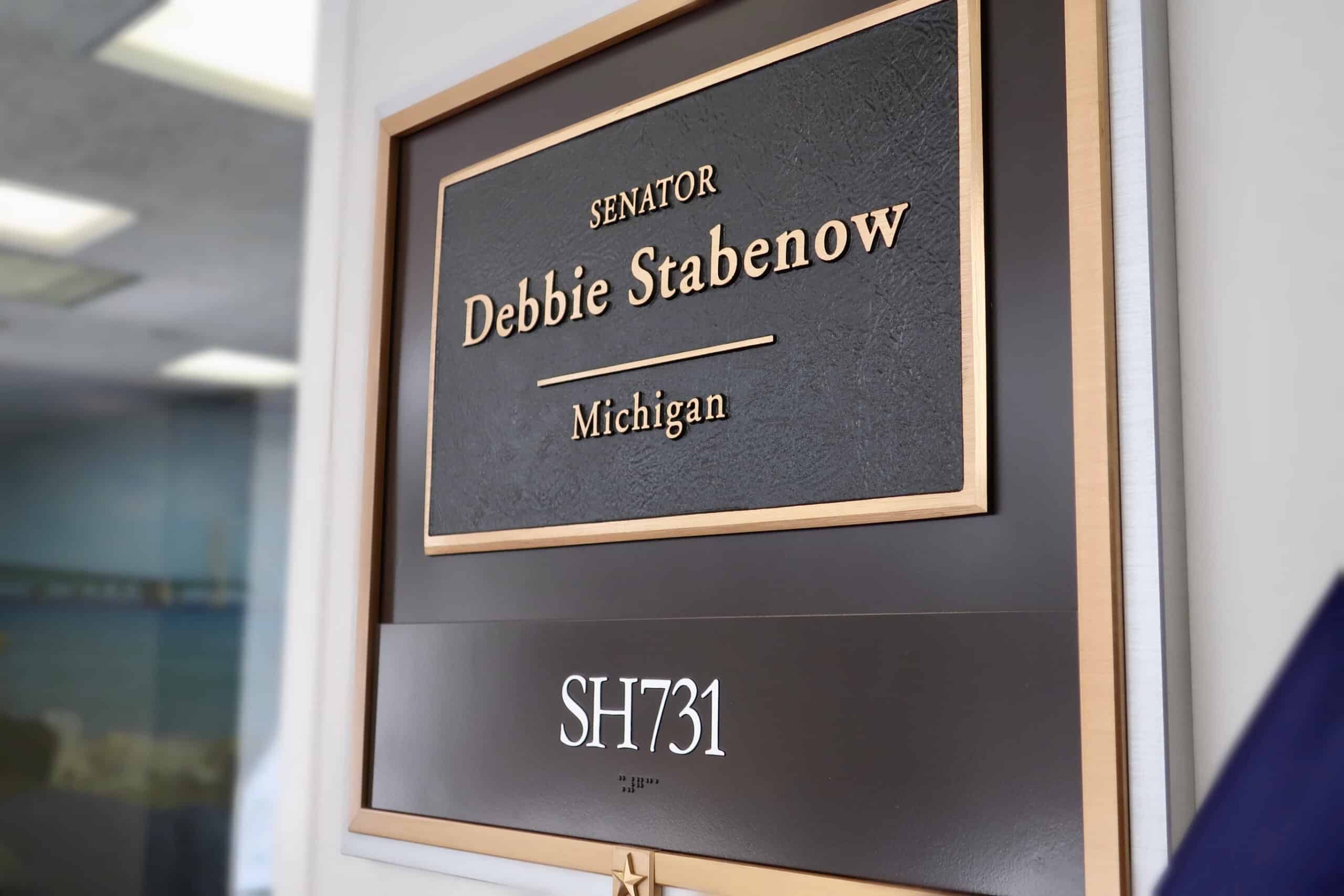A Senate Agriculture Committee hearing on digital commodities will take place on Wednesday, with Chair Rostin Behnam of the Commodities Futures Trading Commission (CFTC) as the sole witness. Behnam last testified to this committee on crypto almost two years ago right after the FTX scandal shocked Capitol Hill. Committee Chairwoman Debbie Stabenow (D-MI) and Ranking Member John Boozman (R-AR) originally introduced the Digital Commodities Consumer Protection Act of 2022 (DCCPA) around this time, but since then have remained quiet on crypto for almost two years.
Stabenow and Boozman have been working closely on a new piece of crypto legislation, but it’s been tightly guarded, according to two sources familiar with the matter, with some Senate staffers who had not seen the bill asking a crypto trade association if they had. Both sources described some staffers as being frustrated that the Senate Agriculture Committee was moving too fast by seeking a markup, which is the last step before the bill would go to the full Senate for a vote, and not holding a legislative hearing first. Although a hearing is now scheduled, it is not yet known whether the committee will share details and discuss the bill at the hearing.
The bill will be more of a DCCPA 2.0, said one source, while the other said it could be a “market structure bill,” which could be a Senate version and response to the Financial Innovation and Technology For The 21st Century Act of 2023 (FIT21), a bill which passed in the House on a bipartisan basis. The initial DCCPA bill received feedback from industry players in 2022 including convicted fraudster and former FTX co-founder Sam Bankman-Fried. However, the investigation into FTX’s collapse in November 2022 overshadowed any possibility of legislative efforts back then. Then in 2024, FIT21, which established a regulatory framework for digital assets that divides the oversight between the SEC and CFTC, became the first crypto legislation to pass a chamber of Congress and set the stage for future legislation.
The offices of U.S. Senators Stabenow and Boozman did not immediately respond to a request for comment on the upcoming hearing or the crypto legislation they are working on.
Biden Administration Labeled as Anti-Crypto by Former President Trump
Stabenow’s new legislation comes as concerns about Democrats losing crypto as a political issue to Republicans rise, especially as many of Stabenow’s Democratic colleagues are up for re-election, according to one source. She may even be reaching out to the White House on the matter, they added. The hearing on Wednesday could be an attempt to help fellow Senators up for re-election engage on crypto as an issue in the Senate to avoid facing defeat from crypto voters in November, according to one source.
Republican presidential candidate Donald Trump quickly seized on the moment when the Biden Administration issued a veto threat, and then used his veto power on a bill, known as H.J. Res 109, that would have overturned SAB 121, an SEC accounting bulletin that made it so onerous for banks to custody crypto that it effectively prevented them from doing so. Trump has since embraced crypto and in return won sizeable donations from industry figures including the Winklevoss twins, who founded crypto exchange Gemini, as well as crypto exchange Kraken’s co-founder Jesse Powell who all donated $1 million each.
“I am excited to join other leaders from our community to unite behind the only pro-crypto major party candidate in the 2024 Presidential election so the United States can continue to remain a leader in blockchain technology,” said Powell on X. While Tyler Winklevoss tweeted, “President Donald J. Trump is the pro-Bitcoin, pro-crypto, and pro-business choice.”
When it came time for the House to vote on significant market structure legislation for crypto, Biden opposed, but did not threaten to veto FIT21. A statement of administration policy (SAP) from the White House said, “The Administration is eager to work with Congress to ensure a comprehensive and balanced regulatory framework for digital assets.” The statement further describes hopes for continued collaboration with Congress to get the right legislation and ended by proclaiming, “…further time will be needed for such collaboration.” By not threatening to veto FIT21, which might have done further damage to Democrats on the crypto issue, one source considers it possible that Stabenow may have urged the White House not to threaten to veto the pro-crypto bill.
Will the Hearing Even Discuss Crypto Legislation Now That Chevron Is Overturned?
In a recent Bloomberg interview, Mike Novogratz, CEO of Galaxy Digital said, “…tons of Democrats in Congress want crypto legislation.” However, all that could change following a recent Supreme Court ruling to overturn the Chevron deference. This landmark ruling takes power away from executive branch agencies that had been established in a case involving Chevron in the 1980s and could change the odds on whether crypto legislation is passed in 2024.
Prior to the striking down of Chevron, Democrats who wanted crypto legislation to happen would be motivated to make this happen sooner rather than later, while they have a majority and Biden as president. However, now that Chevron is no longer a factor, the idea of Trump becoming president may not create the same urgency, as it once did, for Democratic leadership in the Senate to pass crypto legislation, according to one source. Even if Democrats were to lose the White House and a majority in the Senate, if they believe Trump has installed regulators who are interpreting the law for crypto, the Democrats could sue.



